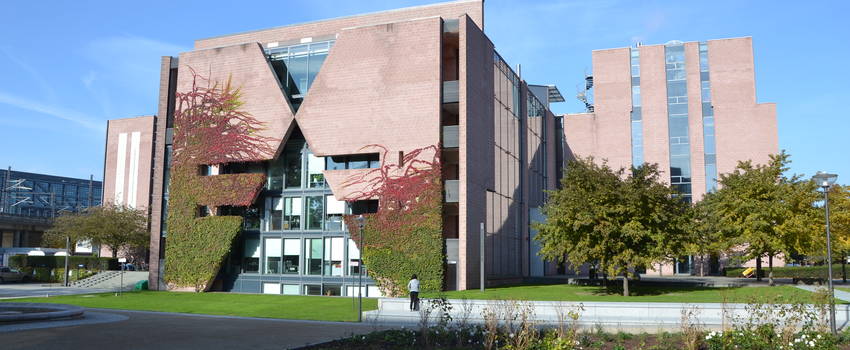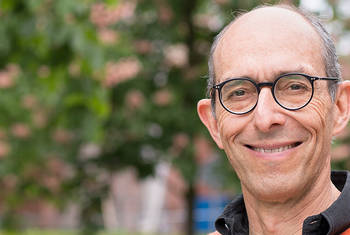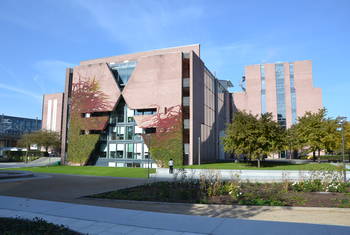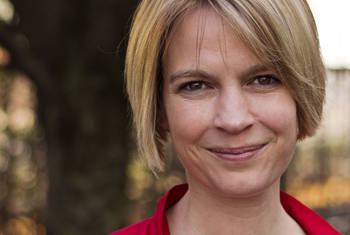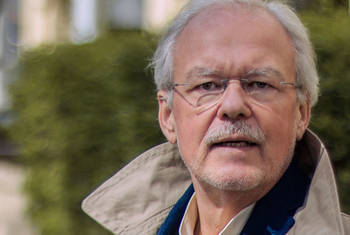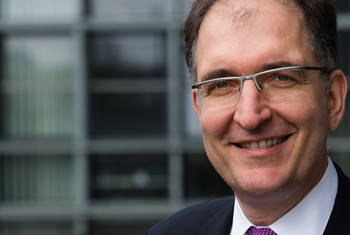Arturo Zychlinsky What Role Do Neutrophils Play in Infectious Disease?
Director of the Department of Cellular Microbiology at the Max Planck Institute for Infection Biology since 2001, Arturo Zychlinsky has previously held a Professorship at the New York University School of Medicineas well as completinga two year fellowship at the Institut Pasteur in Paris. Zychlinsky’s research focuses on Neutrophils and NETs, Immunity and Development and the Inflammasome.A member of both the American and the European Academies of Microbiology, Professor Zychlinsky is the holder of several patents. He regularly provides consultancy expertise to organizations including the Centre d’Immunologie de Marseille-Luminy and Boston based Padlock Therapeutics.
Area of Research
Immunology
since 2001
Director
Max Planck Institute for Infection Biology (more details)
1999-2001
Associate Professor
New York University School of Medicine
The Skirball Institute and Department of Microbiology
1994-1998
Assistant Professor
New York University School of Medicine
The Skirball Institute and Department of Microbiology
1991-1993
Postdoctoral Fellow
Unité de Pathogénie Microbienne Moléculaire (Institut Pasteur, Paris)
1985-1991
Ph.D. of Immunology
The Rockefeller University, New York
1980-1985
Studies of Chemistry, Bacteriology and Parasitology
Escuela Nacional de Ciencias Biológicas (Instituto Politécnico Nacional, Mexico City)
- Journal of Biology (since 2008)
- Cell Host and Microbe (since 2007)
- Journal of Molecular Medicine (2007 - 2010)
- Cellular Microbiology (since 1999)
- Infection and Immunity (since 1997)
- EMBO
- Leopoldina
- European Academy of Microbiology
- American Society for Microbiology
- American Academy of Microbiology
Prizes
- Eva und Klaus Grohe Preis der Berlin-Brandenburgischen Akademie der Wissenschaften (2005)
- Irma T. Hirschl Career Scientist Award (1998)
Institute
Max Planck Institute for Infection Biology
The Max Planck Institute for Infection Biology focuses on understanding how microbes cause disease and how hosts respond to this challenge. Its mission is to understand infections by viruses, bacteria, parasites, fungi and worms of two reasons: they present one of the most significant medical burdens on earth and the interaction between microbes and their host are an essential driver of evolution. To find answers to the fundamental questions of infection biology, the MPIIB brings together scientists from various disciplines. Hence the scale of the MPIIB research spans through the atomic, molecular, cellular, tissular, organismal, clinical and finally social level. The Institute is located at the historical Campus of the Charité Clinic in the heart of Berlin.
Map
Neutrophils are both the most abundant immune cells and the first to go to a site of infection. In this video, ARTURO ZYCHLINSKY explores the role that Neutrophils play in infectious disease. Zychlinsky explains that Neutrophil Extracellular Traps (or NETs) kill and prevent the dissemination of microbes while also alerting other parts of the immune system to infection. Revealing some of the processes involved in NET formation, Zychlinsky demonstrates that, depending on the type of disease, NETs can play either a beneficial or a deleterious role. With NET’s relevance extending beyond infectious disease to conditions including cancer and cardiovascular disease, Zychlinsky’s work has opened up a fertile field of exploration for research labs worldwide.
LT Video Publication DOI: https://doi.org/10.21036/LTPUB10840
Neutrophil Extracellular Traps: The Biology of Chromatin Externalization
- Gabriel Sollberger, Dorothea Ogmore Tilley and Arturo Zychlinsky
- Developmental cell
- Published in 2018


